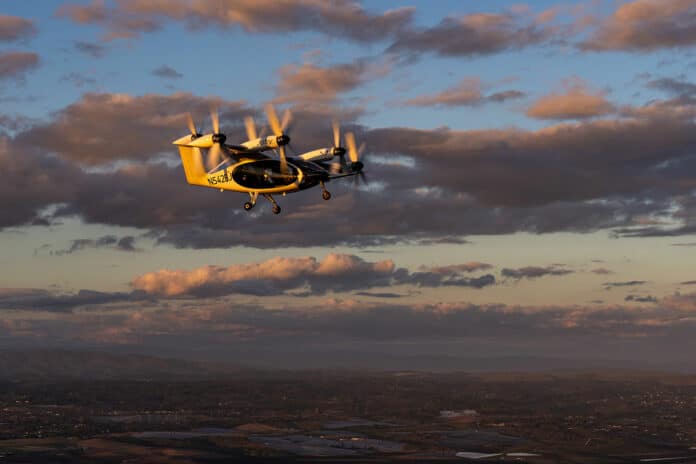California-based eVTOL maker Joby Aviation has received its Part 145 Repair Station Certificate from the FAA, qualifying the Company to perform select maintenance activities on aircraft. This is considered to be a significant milestone for Joby in their efforts to commercialize their electric air taxi service.
Joby is believed to be the first eVTOL developer to receive such a certificate from the FAA. This will lay the foundation for Joby to perform maintenance, repair, and overhaul (MRO) services on its eVTOL aircraft in the future.
“This approval marks another foundational piece of Joby’s vertically-integrated strategy, including aircraft development, manufacturing, charging systems, commercial flight operations, and now maintenance operations, as we prepare to bring our revolutionary eVTOL aircraft to market,” said Bonny Simi, President of Operations.
“Receiving our Part 145 certificate from the FAA is an important step towards developing the needed maintenance, repair and overhaul services to support Joby’s commercial flight operations, as well as establishing career pipelines for people who want to become eVTOL aircraft technicians.”
Joby has recently obtained the Part 145 certificate, which permits them to perform specific airframe, radio, and instrument repairs on conventional aircraft. They plan to expand their MRO services in the near future. Additionally, Joby can provide on-the-job training to aspiring aircraft technicians, thanks to the certificate.
The company has also collaborated with Aviation High School in Queens, New York, to integrate course material on electric propulsion systems, preparing students for career opportunities in quiet, emissions-free flight.
Joby Aviation has developed an electric air taxi that has the capacity to carry a pilot and four passengers, with a maximum speed of 200 mph. The air taxi also produces significantly less noise compared to helicopters and has zero operating emissions, making it an eco-friendly mode of high-speed transportation.
